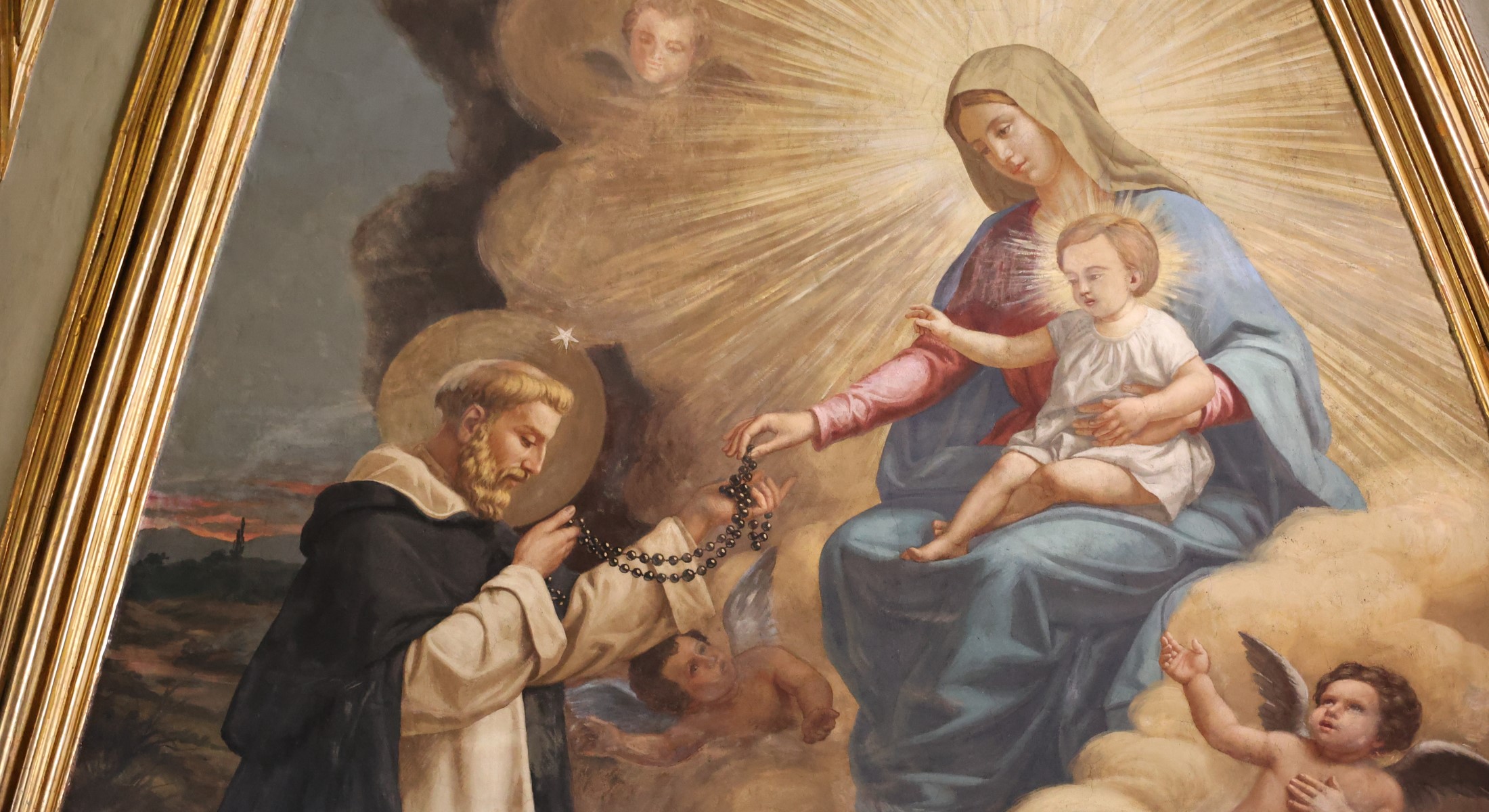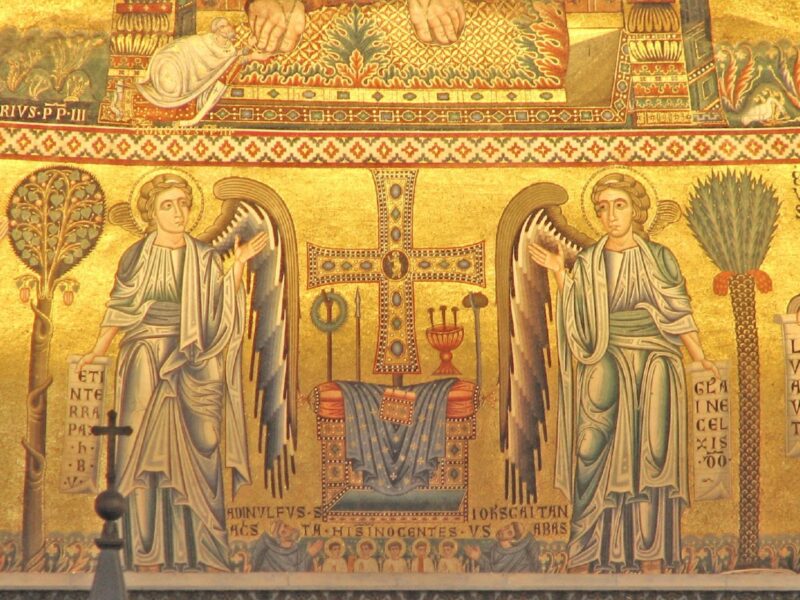
Prayer for Grown-Ups
Twenty-ninth Sunday of the Year. Fr Simon Gaine reassures us that we can and should ask God for the things we want.
Sometimes it is easy to feel that praying for things is not quite the best way to pray. Sometimes we can feel that asking God for things is somehow immature. It may be that if we keep asking God for things, we will always remain like little children, unable to take responsibility for ourselves as adults. As a child, I often remember being told that God was not like a coin-in-the-slot machine. It was a temptation to treat God like that: we put the prayer-coin in the slot, and out comes the answer to our prayer, almost automatically. But that was a bad way to treat God, I was told. We must resist the temptation to infantile religion.
But did that mean that asking God for things was always wrong? Or was the prayer of petition condemned entirely to spiritual immaturity? Then again there is the attractiveness of other kinds of prayer. There is the prayer of being grateful, not asking God for new things all the time, but thanking him for all the good things he has already given us. Then there is the prayer of contrition, of expressing sorrow for the bad things we have done. And again there is a prayer of praise, where we simply honour God for who he is. Then there is a prayer of contemplation, where we simply gaze on God, perhaps without any words at all.
Now every one of those kinds of prayer is good and mature. And maybe we should value them so much that asking God for things appears altogether childish and immature? Or should we? In today’s Gospel Jesus takes a somewhat different attitude. Jesus never downplays the importance of thanksgiving and the rest. In fact he gives them their proper importance. But he also gives an honoured place to the prayer of petition.
He presents us with an unjust judge who gives justice to widow only because she keeps pestering him. If a bad man will eventually give the widow what she asks for, will our good God also not do justice for those who call on him? In case we don’t get Jesus’ meaning, Luke rams it home. Jesus was telling a parable, he says, about how we should petition God continually and never lose heart.
But if this is what Jesus tells us, then the prayer of petition can’t be half as infantile as it is sometimes made out to be. In the first place, by inviting us to pray, God is in fact treating us as adults. God wants us to take part in his plan as intelligent beings. It is because we are intelligent that we are able to ask for things. Sometimes God wants to give us something through our asking for it. In that way he involves us in his plan as intelligent beings who can weigh things up and make intelligent requests. So God moves us to ask for things, and in that way involves us in his giving us good things.
Of course petition reminds us not only that we are adults capable of mature thought, but also that we rely on God for all the good things we have. We may be adult human beings, but we are not above ourselves, supposing ourselves to be higher than God. Again, there can be something especially mature about the faith of someone who asks God for things. If we shy away from petitionary prayer, maybe it’s because our faith is weak and we don’t want to put it to the test. If we tested our faith by asking for something, and then we didn’t get it, maybe we are afraid we would lose what little faith we have. So the safest course is not to test it out, and stick to safer things like thanking God for what we already have.
But if we have true faith, maybe we will not be afraid to take the risk, and place our petitions, our wants and our needs, before our heavenly Father. It is also part of maturity that we are able to receive the answer ‘no’. I’ve seen children who cannot stand hearing the answer ‘no’, when they want something. They scream, shout, or go all miserable. But as they get older, they learn to accept the answer ‘no’ with a bit more equanimity, even if it is still upsetting for them.
In this life, we may always have the experience of being saddened when we do not get what we ask for in prayer. But we have to learn to accept the answer ‘no’ with maturity. And it is true that our prayer has been answered. Sometimes we make the mistake of thinking that God has not answered our prayer, or has not even heard our prayer. But that is never true. God is all-knowing and he hears all our prayers. He knows what we want and what we need even before we put our prayers into words. And he always answers our prayers in some way because he is our good and loving heavenly Father.
But sometimes he does give us the answer ‘no’, and that is the hardest thing for us to accept, because so often the things we ask for are so small we don’t see why God can’t do them, or sometimes they are so important that we can’t see why God doesn’t act the way we think he should. We don’t know why he doesn’t do these things, but we trust that it is because in the end he is offering us something better over all. We trust that in the end he is giving us something better than the good thing we ask for at the time.
We trust him because we know that we do not see from his perspective, from the perspective of one who knows all things, and knows what is better for us, what we really need, than we do ourselves. And so we still pray continually, never losing heart, as we learn from him to pray more rightly. in accordance with his will. And so, if our faith is strong, we can still ask and play our part as intelligent adults, co-operating in God’s plan, and we can still bear the answer ‘no’, however painful it may be. And in that way petition can sometimes become the most mature prayer of all.
Readings: Exodus 17:8-13 | 2 Timothy 3:14-4:2 | Luke 18:1-8
Image: St Dominic receiving the Rosary – painting from the Basilica of Nuestra Señora del Rosario in Cordoba, Argentina, photographed by Fr Lawrence Lew OP



Frances Caldwell
Thank you Father, for a straightforward and very meaningful homily. I appreciate it very much.